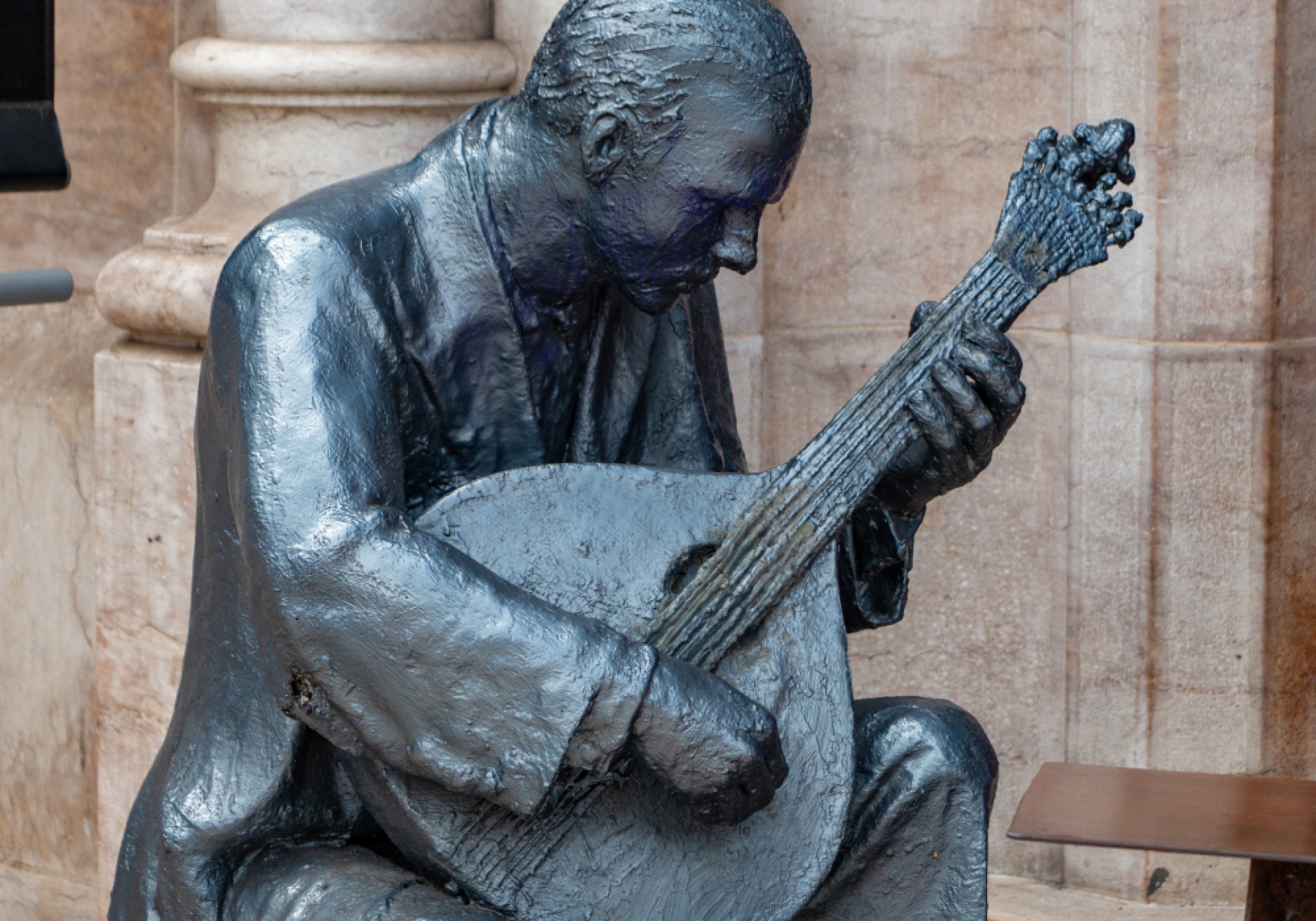
Fado is made with its fado singers
01 January, 1970
It is the names of departed artists, allied to current artists, that bring excellence to this Portuguese style.
Among the mixture of emotions and memories provided in each musical moment, we present you some of the best known names in Portuguese Fado.
Amália Rodrigues
We have much to thank Amália Rodrigues, Queen of Fado. Between the years 1943 and 1990 she performed in five continents, especially in the United States of America, where she participated in the NBC program Coke Time with Eddie Fisher in the year 1953. Already at this time she was the first Portuguese artist to appear on American television.
Besides music, Amália Rodrigues made her debut in several magazine plays and in cinema, with Fado always present. Even today you can still hear her interpretations, which serve as an example to many.
Her awards and splendor took her to the National Pantheon in Lisbon, where she lies since 2001. Among her best known songs is "Povo que lavas no Rio" a classic of Portuguese fado.
Carlos do Carmo
Another important name in Fado is Carlos do Carmo, son of Fado singer Lucília do Carmo, acclaimed since 1963, when he first interpreted Fado "Loucura" by Júlio de Sousa. Still in the beginning of his career, the fadista received several distinctions.
He made his debut outside Portugal in 1970 with concerts in Angola, the United States, and Canada. In 1976, he participated in the Eurovision Festival that took place in Holland. Here he interpreted the song "Uma Flor de Verde Pinho" by Manuel Alegre, which became part of the album "Uma Canção para a Europa".
Augusto Hilário
Father of the acclaimed Fado Hilário, Augusto Hilário had contact with Fado when he arrived in Coimbra between 1889 and 1890 to study medicine.
Soon his interpretations became known throughout the country. In addition to interpreting poems of the authors of the time, he wrote several songs that became immortalized in the society. Although his time in Fado was short, his death was mourned by family, friends, admirers and acquaintances.
Mariza
After Amália Rodrigues, she is the best known name in Fado and Portuguese music internationally. Her first album, Fado em Mim, was released in 2001 by World Connection and reached 32 countries, making her the talk of the world. From it comes her interpretation of the song "Ó gente da Minha Terra", written by Amália Rodrigues.
From then on, Mariza continued to grow and released her second album, Fado Curvo, where she interprets the song "Primavera". This album reached 6th place on the Billboard World Music chart.
Since then she has released five more albums and has been present on some of the biggest and most important international stages having collaborated with big names in the music industry.
Camané
Carlos Manuel Moutinho Paiva dos Santos, better known as Camané, is one of the brightest names in Fado of this generation. He began his career as an amateur Fado singer and at the age of 12 he won the annual event "Grande Noite do Fado", where over the years names like Marina Mota, Anabela Pires, Raquel Tavares and Ricardo Ribeiro participated.
Participation in this event opened doors for her in the music business, including participation in several plays by Filipe La Féria. In 2000, he won a silver disc for the sale of 10 thousand copies of his 3rd album. The following year he won a second silver disc, just three weeks after releasing his 4th album. In turn, the fado singer's 5th album received a gold record.
Camané's career continues to cross borders, treading some of the most important international stages.
Alfredo Marceneiro
Alfredo Marceneiro marked his generation of Fado. He started singing around 1905, when he was only 13 years old, and quickly became known for his music and improvisations.
He participated in parties and cegadas until 1924, the year he performed at the São Luiz Theater and won a Silver Medal. He retired in 1963, in the same place that saw him win an award, but not for that he stopped singing.
From this time, remains his album "The Fabulous Marceneiro" considered by Blitz as one of the best Portuguese records ever.
On June 10, 1984, years after his death, he was awarded the Comenda da Ordem Infante D. Henrique by General Ramalho Eanes, until then President of the Republic.


